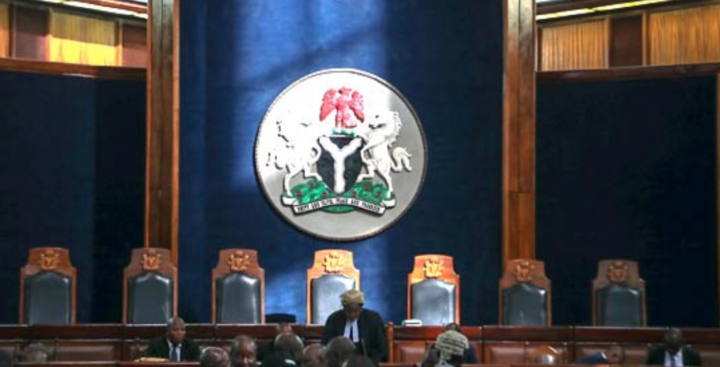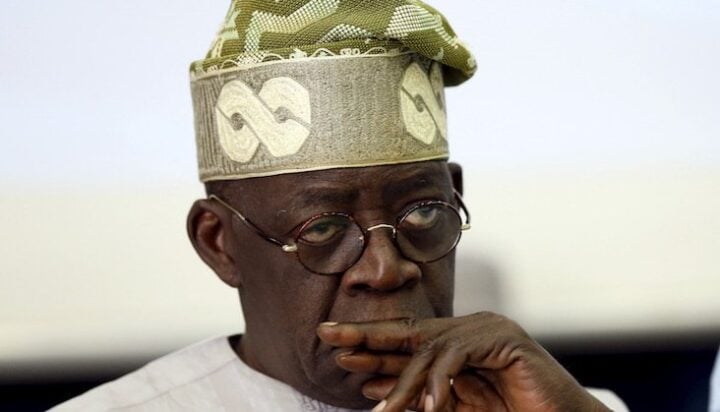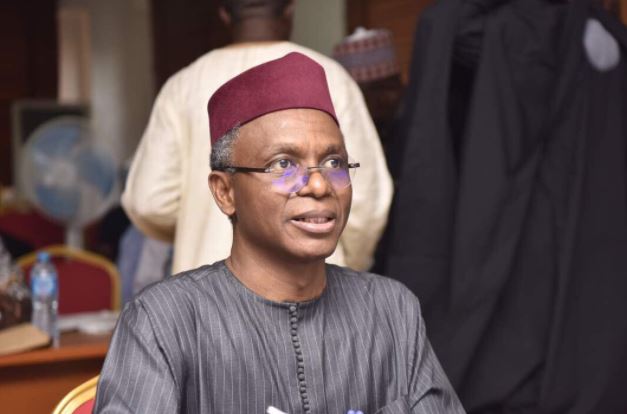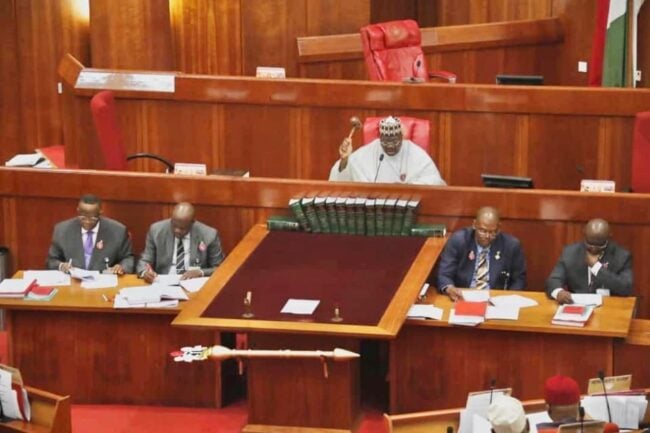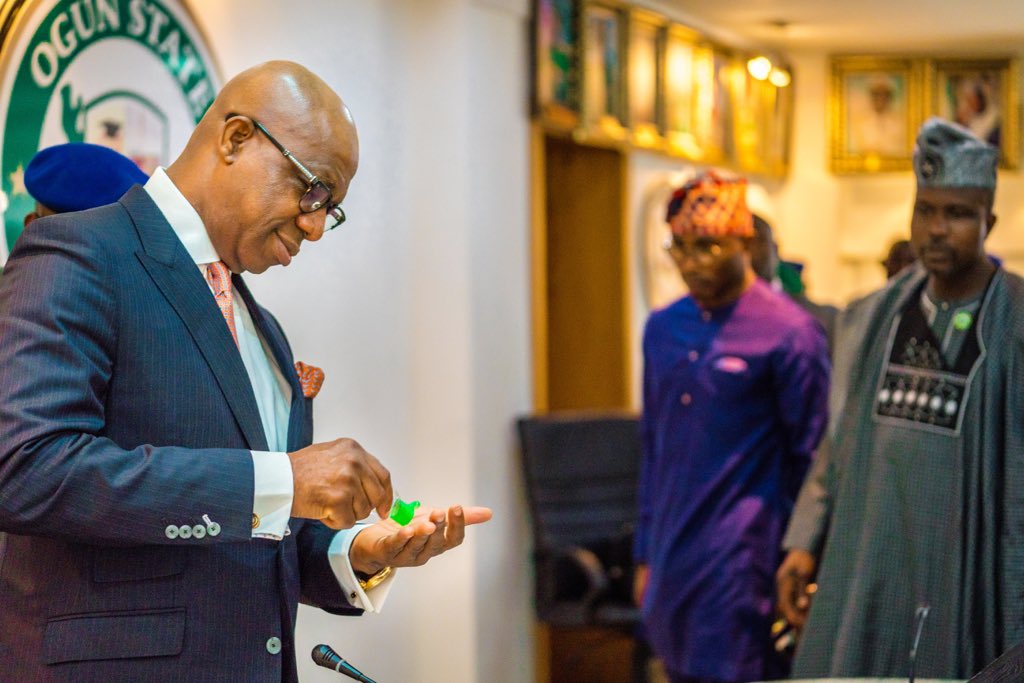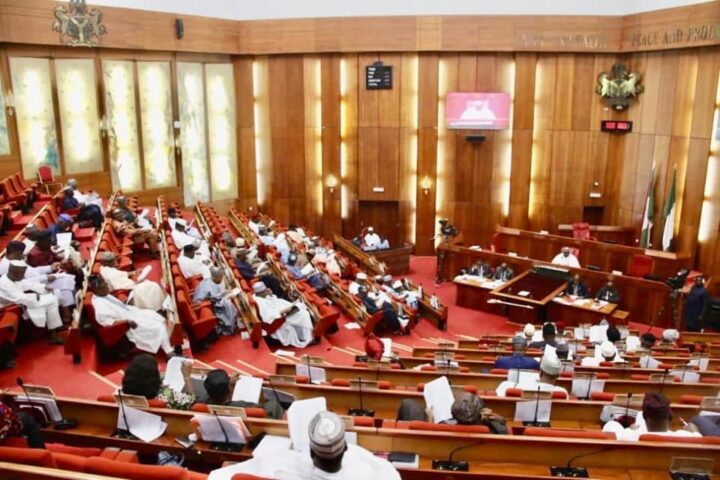BY RAYMOND NKANNEBE
With the Supreme Court reaffirming its decision in the Bayelsa guber conundrum on 26th February, 2020, the judgement of the Court has effectively fallen on the laps of academics, lawyers and other stakeholders for interrogation and strictures if anything, to establish the extent to which it conforms with binding precedents of the Court and even more importantly the principle of franchise; the greatest marker of any democracy. Having gone through the judgement qua the leading judgment as read by Ejembi Eko JSC, it is the opinion of this writer that it is one steeped in technicalities over substance and a setback for the efforts towards evolving a body of jurisprudence that accentuates the ballot as the ultimate means of emergence of leaders. With respect to the eminent jurists in the panel, it is a decision reached per incuriam and which the Court should have the courage to depart from when such a case comes before it again.
BRIEF FACTS OF THE CASE
The material facts of the case are pretty straightforward. Having won the nomination of the APC as its candidate for the Nov. 16 gubernatorial election, David Lyon in compliance with section 187 of the 1999 Constitution nominated Mr. Degi Biobarakuma as his running mate and both of them consequently submitted the appropriate documents to the Independent National Electoral Commission (INEC) as mandated by section 31(1) of the Electoral Act 2010 (as amended) (“The Act”). Pursuant to section 31(5) of the Act, the governorship candidate of the Peoples Democratic Party (PDP) and the party approached the Court vide an originating summons asking it to disqualify the running mate of David Lyon. They predicated their action on the ground that the said Degi Biobarakuma presented false information in his Form CF 001. The ingredients of these alleged falsification was the discrepancy in the name of the Mr. Biobarakuma on the certificates accompanying his Form CF 001. The Respondents denied these allegations. While he owned up to the certificates and the inconsistencies, he denied forging their contents and gave explanations in his counter affidavit on how the discrepancies came about.
Advertisement
After hearing both parties, the trial Court presided by the Hon. Justice Ekwo granted the plaintiff’s claim, and disqualified the Defendants from participating in the election. An appeal lodged by the latter at the Court of Appeal, Abuja succeeded whereat the intermediate appellate Court held that the Plaintiffs did not prove the allegation of forgery (which was the gist of the offence) beyond reasonable doubt as required by law, and consequently set aside the trial Court’s decision. It is instructive to note here that the judgement of the Court of Appeal was rendered only a day to the election.
The election held on the 16th of November, 2019 whereat Mr. David Lyon of the APC and his embattled running mate won a landslide victory. While they celebrated, the PDP and its candidate lodged an appeal at the Supreme Court challenging the decision of the Court of Appeal which set aside the judgement of the trial Court determined in their favour. It is the judgement in that appeal delivered last Thursday, which has upset the power dynamics in the littoral state.
THE SUPREME COURT’S DECISION
Advertisement
Relying on the provisions of section 182(1)(j) of the 1999 Constitution (as amended), the apex Court disqualified the candidates of the APC who had won a popular victory at the ballot, on the grounds that Senator Degi Biobrakuma had forged the certificates he submitted to INEC in his Form CF001. It subsequently, ordered the Independent National Electoral Commission (INEC) to withdraw the Certificates of Return issued to the duo, on the grounds that the disqualification of Biobarakuma vitiated the ‘joint ticket’ with the effect that it is deemed they never participated at the election, and consequently ordered the electoral commission to issue a certificate of return to the next candidate who meets the conditions of a valid return as per the provisions of section 179(2) of the 1999 Constitution. The question is, to what extent was the court right?
A FAULTY RATIO
A studious analysis of the facts of the case on the basis of which issues were joined by the parties, the evidence led at the trial, and a juxtaposition of same against the decision of the apex court suggests otherwise. Having highlighted the brief facts of the case which are now well known on account of repeated reportage in the media, it is sufficient to interrogate the decision of the court against its findings upon the facts. At page 18 of the leading judgement as read by the Hon. Justice Ejembi Eko, the court merely found that there were discrepancies in the names used by David Lyon’s running mate in the various certificates he had submitted and nothing more, but concluded thus, “…it is clearly fraudulent for one person to allegedly bear several names that he use variously chameleonically to suit the changing environment”. Be it known however, that there was nothing on the affidavit evidence that suggested that these certificates were not legally earned by Degi Biobarakuma, to ground a case of forgery in terms of the provision of section 182(1)(j) of the Constitution and sections 362 and 363 of the Penal Code.
Instructively, in the affidavit deposed to before a Notary Public on the 18th September 2018, the embattled Biobarakuma had explained away the reasons for the disparity in the combination of names featured on some of his certificates citing administrative gaffe of officials at the school where he obtained his First School Leaving Certificate, the taking of a chieftaincy title later in life in line with his Nembe custom, amongst a host of reasons. Strangely the trial Court and the apex Court failed to resolve the reasonable doubts created by these denials on the merit in favour of Mr. Biobarakuma in line with the settled principle in criminal adversarial jurisprudence.
Advertisement
It is my considered view that these averments ordinarily ought to have cured whatever perceived irregularities in the said certificates as the burden of proving that they were in fact forged rests on the Plaintiff, yet the Court went off the tangent preferring arguments of form, above substance against the grain of equitable principles by censoring the Notary Public before whom the affidavit of regularisation was deposed─describing him as “unverifiable”. It is my submission with respect that the court fell into grave error on this score as an affidavit by its nature is ex facie regular irrespective of any irregularities and enjoys the presumption in section 168 of the Evidence Act. The court therefore ought to have accredited the affidavit deposed to before Stanley Damabide & Partners with probative value as a truth of its content.
Be that as it may, the position of the law is settled, that being a criminal offence, anyone who alleges forgery even in a civil dispute, has the bouden duty to prove same beyond reasonable doubt. Now, proof beyond reasonable doubt is not a mean feat in adversarial jurisprudence and almost always must be etched out on the preponderance of evidence usually requiring oral evidence for the judex to make a finding. Strangely enough, the suit in question was commenced vide an Originating Summons filed before a Federal High Court sitting at Abuja wherein the Plaintiffs merely urged the Court to interpret the documentary evidence viz a viz the claim of the 1st Respondent (Degi Biobarakuma), and to hold that the discrepancy in name combinations amounted to an act of forgery. I shall come back to this shortly.
Now, as a means of commencement of actions in civil courts, Originating Summons is not an advised method where the facts are likely to be contentious as played out in this case. In such an instance, a Writ of Summons would be an apt method, such that would allow the trial court hear oral evidence and be properly guided in its findings especially as a criminal offence is in issue. This was not done in this case and which instructively necessitated the Preliminary Objection filed by Degi Biobarakuma and his party at the trial Court challenging the appropriateness of the commencement of the suit vide an Originating Summons, which objection was dismissed by the trial court on the grounds amongst others that the suit was competent as constituted since it required mere interpretation of documents which begs the question, how does mere interpretation of the contents of a school certificate evince the criminal act of forgery which must bow to the criminal elements of actus reus and mens rea?
It is submitted that the trial Court was wrong with respect as such a finding overlooks the evidential requirements of proof to the mountain given the nature of criminal infraction alleged by the PDP and its then candidate Duoye Diri. On the contrary, I am persuaded by the stance of the Court of Appeal which set aside the decision of the trial Court on the grounds that the PDP failed to prove to the required degree that the said certificates in spite of the glaring inconsistencies on their face, were forged by Degi Biobrakuma to confer undue advantage to himself to satisfy the provision of section 182(1)(j) of the Constitution.
Advertisement
In allowing the appeal however, the Supreme Court at page 13 of the cyclostyled judgement relied on the finding of the trial Court at page 554 of the records of appeal namely, “the entire proceedings here in my opinion is based on documentary evidence”, to justify the commencement of the action vide Originating Summons and further held that having not appealed against that finding at the Lower Court, the Respondents (Degi Biobarakuma and his party were bound by it.
Admittedly, that is the norm in appellate legal practice in our current legal regime, yet the Supreme Court owes it as a duty not to suffer injustice on the grounds of technicalities. And this, especially in election related cases. This is more so as the court has severally waxed philosophical on the need for courts to do substantial justice especially in election matters where the collective will of the masses are in issue. It would suffice for the purpose of this discourse to reproduce one of such. In the case of Nneje v Chukwu () 3 NWLR (Pt. 81) 184 @ 209, the Court stated the point pointedly thus:
Advertisement
“…Technicalities deal with legal forms but not necessarily with substance. The Courts exist to do substantial justice not formal and the technical modes of procedure should be subservient to the dictates of justice. If therefore the observance of any rule will produce an obvious injustice, a Cot of justice will naturally prefer justice to the technicalities the rule imposes”.
It is my submission that the suit having been commenced by Originating Summons at the trial Court, the apex Court had the plenitude of powers vide section 22 of its establishment Act to skirt around such a technical argument to determine whether in the light of the allegation in issue, an originating summons usually fought on affidavit evidence, was enough to evince beyond all reasonable doubt the criminal allegation complained of as it has done in a plethora of cases. Commenting on the inappropriateness of commencing a suit where allegation of forgery is in issue vide originating summons, the apex Court held in the very recent case of Agi. V. P.D.P (2017) 17 NWLR (Pt. 1595) 386 @ pages 469-470 paras. G-A as follows:
Advertisement
“ An action can be commenced by an originating summons when the facts of the case are not in dispute. Where, as in the instant case, the facts were in contention the procedure becomes unsuitable for the hostile proceedings”
Another rather technical point taken by the apex Court was its finding that it was only vide a Deed Poll that the inconsistencies in the name of Biobarakuma on the various certificates could be corrected and not a mere affidavit or deposition. This finding too was an affirmation of those of the trial Court which found as much at pages 574-577 of the record of appeal. Having not been appealed against that finding at the Court of Appeal, the Supreme Court held that it was equally binding on the Respondents. For similar reasons advanced in the preceding paragraph, it is my humble opinion that the apex Court allowed itself to be led into the pit of error dug by the trial Court thereby occasioning gross miscarriage of justice against the Respondents.
Advertisement
MISPLACEMENT OF EVIDENTIAL BURDEN OF PROOF
This is because such a finding smacks of reassignment of statutory evidential roles in plenary trial especially where the commission of a crime is in issue as in the circumstances of this case. Section 135 of the Evidence Act, 2011 puts this beyond paid. It provides as follows:
“ S.135.(1) if the commission of a crime by a party to any proceeding is directly in issue in any proceeding civil or criminal, it must be proved beyond reasonable doubt.
(2) the burden of proving that any person has been guilty of a crime or wrongful act is, subject to the provisions of section 139 of this Act, on the person who asserts it, whether the commission of such act is or is not directly in issue in the action
(3) If the prosecution proved the commission of a crime beyond reasonable doubt, the burden of proving reasonable doubt is shifted on to the defendant.”
An application of the above statutory provisions to the circumstances of this case, would have made it apparent to the apex Court that the Appellants as Plaintiffs at the trial Court did not as much as prove the allegation of forgery to the requisite standard of proof such that would have tilted the evidential burden on Biobarakuma and his APC. Stipulations as to whether a Deed Poll was the appropriate means of regularising conflicting names or otherwise, ought not to have arisen without the Appellants having discharged the onerous burden in section 135(3) of the Evidence Act, 2011 reproduced above. This has been the position of the apex Court from time without memory; a position rooted in Blackstonian jurisprudence. Perhaps a review of some of the recent decisions of the Court in that regard would suffice.
In Maihaja v. Gaidam (2018) 4 NWLR (Pt. 1610) SC. 454, a pre-election case equally dealing with alleged discrepancies in the certificate of declaration of age of a candidate at an election, the apex Court harping on the required standard of proof to establish same while dismissing the appeal held as follows:
“By virtue of section 135(1) of the Evidence Act 2011, where the commission of a crime by a party to a civil proceedings is alleged, like forgery in this case, the alleged criminal offence must be proved beyond reasonable doubt….The Appellant therefore had the onus of satisfying the court below not only that the testimonial was forged but also that the 1st Respondent does not possess the educational qualification stipulated in section 177(c) of the Constitution. He failed woefully on both counts. Having alleged forgery, which is a criminal offence, the onus was on him to establish that fact beyond reasonable doubt notwithstanding the fact that the allegation was made in civil proceedings. I agree with the court below that the appellant failed to tender any evidence, such as a disclaimer from the authority that issued the testimonial, stating that it was a forged document. Not only must it be proved that the document was forged, it must also be proved that it was the 1st Respondent who forged the document. See Ansa v Ishie (2005) 15 NWLR (Pt. 948) 210; Eya v Olopade & Anor. (2011) LPELR-1184 (SC); (2011) 11 NWLR (Pt. 1295) 505; APC v. PDP (2015) 15 NWLR (Pt. 1481) 1. It must also be shown that the person relying on the document knew it to be false and presented it with the intent that it may be used or acted upon as genuine too the prejudice of any person or with intent that any person may, in the belief that it is genuine be induced to do or refrain from doing any act, whether in Nigeria or elsewhere. See Ndoma-Egba v. ACB Plc (2005) 14 NWLR (Pt. 944) 79. There was no such evidence before the trial court. There was also no evidence before the court to contradict the 1st Respondent’s claim of having attended Yunusari Primary School from 1963-1969. THE FACT THAT BORNO STATE WAS NOT IN EXISTENCE IN 1969 IS NOT PROOF THAT THE SCHOOL DID NOT EXIST.”
[Emphasis mine]
Incidentally, Ejembi Eko JSC who read the leading judgment in the Bayelsa case under scrutiny also sat on the panel in the Maihaja case (supra). In his concurring judgment at pages 502-503, paras. F-B of the report, his Lordship declaimed philosophically on the imperatives of proof to the requisite standard and the effect of failure thereof as follows:
“ Section 131(1) of the Evidence Act, 2011 provides that whoever deserves any court to give judgement as to any legal right or liability dependent on the existence of facts which he asserts shall prove those facts exist. Put streetwise, he who asserts must prove his assertion. It therefore logically follows that what is alleged without proof can be denied without proof. When a fact is asserted without proof then the existence of the alleged fact is not established. That is why section 132 of the Evidence Act provides further that the burden of proof in a suit or proceeding lies on that person who would fail if no evidence at all were given on either side. Where as in this case, the commission of a crime by a party to the proceedings is alleged, the alleged criminal offence must be proved beyond reasonable doubt; and the burden of proving the commission of the criminal offence beyond reasonable doubt; and the burden of proving the commission of the offence beyond reasonable doubt is on that person who asserts it…Allegations beyond imaginable conjectures and speculations in political times and proof beyond reasonable doubt of such allegations of criminal offences are not one and the same thing. The former may be of unacceptable political desperation, the latter is an imperative in criminal law practice and procedure.”
RELIANCE ON ‘WRONG’ PRECEDENT
It is my view that the position of the law on the subject couldn’t have been stated any better. Yet in circumstances beyond the imagination of this writer, the apex Court failed to apply the principle eloquently enunciated in Maihaja’s case in the case a foot despite their shared similarities. I have not had the privilege of burrowing through the briefs of the parties to see if this very recent authority was referred to the court. Assuming it was, the apex Court, as far as one has read from the leading judgment did not as much as distinguish their facts to lay a jurisprudential tarmac for departing from it. Quite to the contrary, the only authority relied upon by the court by the apex Court in the leading judgment was a Court of Appeal decision arising from a post-election suit which by their default nature are fought on pleadings and oral evidence. I have had to go through the facts of the said case─Angos Dide v. Seleketimibi (2009) LPELR-4038 (CA) and contrary to the apex court’s position at page 20 of the cyclostyled judgement; their facts are not on all fours with those in the instant case. How?
In Seleketimibi, two documents evidencing age of the Respondent who contested and won a seat into the Bayelsa state House of Assembly were in issue. The one, Exhibit A was an Affidavit of declaration of age accompanying the Respondent’s INEC Form C.F 001 where he claimed to have been born on the 16th of July, 1966, and the other, Exhibit B, where he stated under Oath that he was born on the 16th July, 1970. It was upon juxtaposition of these two documents after hearing oral evidence from the Petitioners/Appellants in that case, that the Court of Appeal held that “Exhibit B proved beyond reasonable doubt that Exhibit A presented to INEC by the Respondent, himself a lawyer, is a forged certificate”.
It is instructive to note however that the Respondent in that case “offered no evidence to rebut or clarify the issues raised by the Appellants at the Tribunal as regards Exhibits A and B” in that case, thus leaving nothing on the other side of the evidential scale to take the benefit of any presumptions of innocence where there are pockets of doubt. However, none of these played out in Biobarakuma’s case who condescended upon particulars in his affidavit evidence at the trial Court to explain away the reasons for the disparity in the combinations of his names. Consequently, it is my view that this was enough to resolve any doubt whatsoever in his favour since what was in issue was a criminal infraction unlike the Respondent in the Skeletimibi case who led no evidence and is deemed to have admitted the allegations. This is what the apex Court intended in State v Fatai Azeez & Ors (2008) LPELR-3215 (SC) where it held that “the law is well settled that where there is doubt in a criminal trial, such doubt is resolved in favour of the accused person”.
But taking the point beyond that, against the backdrop of the fact that what was in issue in the Seleketimibi case heavily relied upon by the apex Court was the age of a candidate and not their academic qualifications as in the case under scrutiny, is the authority jurisprudentially still a good law in the light of the apex Court’s decision in the recent case of Agi v P.D.P (2017) 17 NWLR (Pt. 1595) 386 that “the mere falsification of age without proof of its being done to circumvent the age prescription in the Constitution, does not amount to an act of criminality”? A follow up question may be, since when did a Court of Appeal decision, become the guiding post of our jurisprudence?
The summary of all I have been trying to say, even if at the high risk of prolixity, is that the Supreme Court’s decision was with respect, reached per incuriam. This is because mere possession of academic certificates with conflicting combination of names does not in our considered view, aggregate to a case of forgery. Such a far reaching finding, must be a product of hard evidence and not one of conjectures or outright speculation. For a thing to be forged, the original, from proper custody and the counterfeit versions must be juxtaposed to establish same. Anything shorn of that, cannot tantamount to a convincing case of forgery. This was what the self same apex Court held in the case of Agi v. PDP (supra). Answering the question whether forgery can be proved without the original of document, the Court, Per OGUNBIYI JSC ( now rtd) held:
“ forgery cannot be grounded in respect of a document in the absence of its original. In other words, mere presentation of series of documents by a party, without pin-pointing clearly the original one from the counterfeit cannot establish a case of forgery or falsification of age.”
It is our view therefore that had the apex Court adverted its mind to the above decision, it would have equally reached the finding that the mere inconsistencies in the name combination in the certificates submitted by Degi Biobarakuma as it found, was not enough to establish a case of forgery as the Appellants did not evidentially pinpoint clearly the original ones from their alleged counterfeit.
AN ORDER AGAINST THE PRINCIPLE OF FRANCHISE
Another interesting dimension which the decision took, was the definitive order of the apex Court disqualifying the embattled deputy governor-elect along with the governor-elect, David Lyon on the basis of their having ran on a joint ticket which purportedly sealed their destiny; an arcane legal fiction that has become the vintage cloak of injustice. Said the court at page 22 of the cyclostyled judgement, “the sum total is that the joint ticket of the 1st and 2nd Respondents sponsored by the 3rd Respondent was vitiated by the disqualification of the 1st Respondent”. Surprisingly for a judgment with such a seismic ramification for the political order in Bayelsa state and the country at large, not a judicial authority was advanced to prop this far reaching declaration.
Section 31(6) of the Electoral Act, 2010 (as amended) which could be described as the punishment section for the disqualification of candidate vide section 31(5) of the same Act provides as follows:
“if the Court determines that that any of the information contained in the affidavit or any document submitted by that candidate is false, the court shall issue an order disqualifying the candidate from contesting the elections”.
Further, section 187 of the Constitution which is often mentioned as the legal framework for the inseparable destiny of a candidate and his running-mate provides:
“in any election to which the foregoing provisions of this part of this Chapter relate, a candidate for the office of Governor of a State shall not be deemed to have been validly nominated for such office unless he nominates another candidate as his associate for his running for the office of Governor who is to occupy the office of the Deputy Governor, and that candidate shall be deemed to have been duly elected to the office of Deputy Governor if the candidate who nominated him is duly elected as Governor in accordance with the said provision”.
Now, a coterminous but calm reading of the above statutory and constitutional provisions does not suggest that it was the draftsman’s intention that the disqualification of a candidate’s running mate should automatically rub off on him whose hands was not caught on the proverbial cookie jar. This defeatist interpretation of the above provisions it is submitted makes nonsense of the principle of franchise in a democratic state where the people are expected to elect their leaders through a free and fair balloting system. If it has achieved anything, it is the imposition of minority sentiments over popular will as the Bayelsa example has shown.
The draftsman of the Electoral Act did not mince words in section 31(6) of the Act when he provided for sole disqualification of a candidate who is found to have forged any of the particulars submitted to the electoral body. There is nothing in the letters of the provision that suggests any unified electoral destiny of the candidate and the running mate. The operative word used in the section is “the candidate” and not the “ticket”. Thus, it is my submission that any interpretation that purports to construe the provision as disqualifying both the candidate and the running mate tantamount to saddling the provisions with more than was intended by the draftsman. The trite principle of interpretation of statutes is that where the language used in a statutory provision is simple and straightforward; they should be given their simple literal meaning. No more no less. This has been the settled position of the apex Court in a long league of cases as far back as A.G. Bendel State v. A.G. Federation (1983) All NLR 208. The question is: why wasn’t section 31(6) of the Constitution given its simple and literal meaning?
Taking the point further in its constitutional context, section 187 of the Constitution was put under judicial microscope by the apex Court recently in the case of Wada v.Bello (2016) 17 NWLR (Pt.1452) 374 where the Court deconstructed its electoral dynamics. There, the court held that nomination or non-nomination of any candidate to run as Deputy Governor pursuant to section 187(1) of the 1999 Constitution (as amended) relates to nomination of the candidate and not to his qualification or disqualification to contest the elections. Thus, the electoral importance of compliance with section 187 of the Constitution or otherwise, goes to the issue of valid nomination of the candidate. Therefore once a candidate has validly nominated his running mate, the provisions of section 187 is fully satisfied. It is my submission that any vitiating element that detracts from the qualification of the said running mate, either before or after the election, but before swearing-in as in the Bayelsa case, ought to be the burden of the affected candidate. This in my view is the purport of section 31(6) of the Electoral Act.
The operative portion of section 187 says, “shall not be deemed to have been validly nominated for such office unless…” and not “shall not be qualified for the office”. It is therefore our considered view that on the letters of the Constitution and the Electoral Act, the disqualifying strain on Degi Biobarakuma’s candidacy ought not to inhere on David Lyon as there is no vicarious liability where the commission of an offence is in issue.
An interpretation along this line it is submitted would accord more with the principle of electioneering as the ultimate goal of any interpretation is to evince the intentions of the draftsman of the legislation vide Ojokolobo v Alamu (1987) 3 NWLR (Pt. 61) 377 @ 402 F-H. I am convinced that it could not have been the intention of the draftsman of sections 182(1)(j) & 187 of the Constitution that a duly qualified candidate for the office of Governor who has validly nominated his running mate within the period stipulated by law, be roundly disqualified on account of any element vitiating the qualification of his nominated running mate who did not participate in the process of his becoming the party’s candidate.
An interpretation of sections 31(6) of the Electoral Act and 187 of the Constitution that accords with the principle of franchise in a democratic setting would be thus: where a person is disqualified as a result of non-compliance with certain provisions of the Constitution, a person who is not guilty of such non-compliance shall not be affected by the disqualification. An interpretation along this line in the context of Bayelsa, would have seen an order of the Supreme Court directing David Lyon to nominate a new-running mate in lieu of the disqualified Biobarakuma.
As a renowned constitutional lawyer, Senator Sola Akinyede observed in his article on the back page of This Day Newspaper of 18th February, 2020 entitled “The Supreme Court on Bayelsa, this would be in consonance with section 181.(1) of the Constitution which provides that if a person duly elected as Governor dies before taking and subscribing the Oath of Allegiance and oath of office, or is unable FOR ANY REASON WHATSOEVER TO BE SWORN IN, the person elected with him as deputy-governor shall be sworn in as governor and he shall nominate a new deputy-governor who shall be appointed by the governor with the approval of a simple majority of the House of Assembly in the state. In this wise, the popular will of Bayelsans who voted massively for David Lyon and the APC would be restored as it is the duty of courts, not least the apex Court of any nation to ensure that the electorates are not lightly deprived of their rights to chose their rulers.
REMEDY FOR LITIGANTS?
The question may then be asked, what becomes the profit of a litigant who takes such a matter to court? Putting it beyond its hypothetical sense, what manner of victory would such have been to Douye Diri and the PDP in the Bayelsa case? The answer to these questions is rooted in the philosophy of legislation. It is my humble view that section 31(4) of the Electoral Act is not designed to be an exploitative provision by an unpopular candidate to cruise to power. Its essence is ensuring that only eminently qualified men of integrity aspire to leadership positions.
In a Notable Pronouncement in the case of Saleh v Abah (2017) 12 NWLR (Pt. 1578) 100, the apex Court per. BAGE, J.S.C (now rtd.) underscored this motive at pages 136-137 Paras H-A of the report as follows:
“This court must take the lead, in righting the wrongs in our society, if and when the opportunity presents itself as in this appeal. Allowing criminality and certificate forgery to continue to percolate into the streams, waters and oceans of our national polity would only mean our waters are, and will remain dangerously contaminated. The purification efforts must start now, and be sustained as we seek, as a nation, to now ‘change’ from our old culture of reckless impunity”.
Statutory justification for the above position is found in the spirit and letters of sections 31(4) &(5) of the Electoral Act which gives the right to sue (challenging the authenticity of documents submitted by a candidate to the electoral commission), to the general members of the public and not just a candidate at the election. The magical phrase used in both sections is “a person”. It is my submission that this is in line with the civic duty members of the public owe themselves and the nation at large towards enthroning good leadership.
Thus, a candidate who lost woefully at an election ought not to ride on the wings of a statutory provision tailored towards a different mischief, to assume power. This is however different from the provision of section 87(10) of the Act which entitles an aspirant who complains that any of the provisions of this Act and the Guidelines of a political party has not been complied with in the selection or nomination of a candidate of a political party for election, may apply to the Federal High Court or the High Court of a State or of the Federal Capital Territory for redress. Such a candidate would be entitled ex debito justitiae to take the seat of the candidate who was illegally selected in his stead where the party and the candidate eventually wins the election as the apex Court famously declared in the case of Amaechi v INEC (2007) NWLR (Pt. 1080) and the line of cases that have followed it.
The point being made is that sections 31(4) & (5) of the Electoral Act is distinct from section 87(9) of the Act in terms of the relief that can flow from them. Thus, the apex Court ought not to have ordered the electoral commission to return the first runners up at the election in line with the spirit of section 31(4)(5)&(6) of the Act. Having participated in the Nov. 16th 2019 election, his remedy lies in section 133 of the Electoral Act vide a substantive election petition.
CONCLUSION
Some of the decisions of the Supreme Court following the disputes arising from the 2019 general election should evoke a serious jurisprudential debate on our electoral legislations chiefly the Electoral Act which arguably is the most revised legislation in our recent political history. There is hardly any round of election that does not prop amendments to the Act. In the same token, the National Assembly must as a matter of necessity go to work on the legislation to make amendments to some of the sections that have been identified in this essay as well as associated provisions of the Act to reflect the basic ethos of democracy: franchise.
The provisions of the Constitution too should not be left out. In the particular context of this essay, sections 182 and 187 of the Constitution readily come to mind. As have been highlighted, a general proviso ought to be inserted in section 182(1)(j) to bifurcate a candidate and his running mate, so that the one, would not be tainted with the sins of the other. This would go a long way in putting a stop to a situation where minority is forced on the majority by the judiciary as we saw last year in Zamfara, and recently in Bayelsa. Happily the 9th National Assembly has moved a motion to revisit the 2018 Electoral Act (Amendment) Bill and only recently, inaugurated the Constitution Review Committee headed by deputy senate president, Ovie Omo Agege. It is hoped that the committee would aggregate some of the ugly fallouts of the 2019 general election and tinker amendments to the extant laws targeted at the core purpose of elections in a democracy, which is for the citizens to elect persons of their choice to govern them.
Yet, as parliament may not be able to foresee all the exigencies of time, the role of the judiciary cannot be overemphasized. Let me put it on record that our judiciary has done a lot in helping to shape and nurture our nascent democracy. And the manifestations are writ large that they do not merit a chronicle here. However, the events of our recent history has shown that there is still too much work to be done, as our democracy continues to evolve.
The time has come for all of us to take a sober reflection on the structure of our judiciary, particularly the apex Court. Day after day, their Lordships of that court continue to cry hoarse over the work load they are saddled with. I do not know of any supreme court in the world that is as overwhelmed as ours. While the Constitution provides a maximum of 21 judges for the court, it currently has only 13 judges presiding over appeals arising from decisions across the 36 states and the FCT. Such an overburdened bench cannot be expected to do any serious legal work and this is what some of its recent decisions have shown. There is a general concern in the bar that judgments of the Supreme Court are no longer what they used to be in terms of depth and erudition. Which begs the question, what has gone wrong?
I think the time may have just come for the number of justices of the Court to be increased to a maximum of 40 with each of them statutorily entitled to a minimum of 7 Legal Assistants who must be legal practitioners with a minimum of 7 years post-call experience. With this human resource in place, we can expect decisions from the court that are richer in jurisprudence and tailored towards the attainment of substantive justice and not undue resort to technicalities which may be justified in law, but lacking in the very essence of justice. At a time when the confidence of the public in the judiciary is at its lowest ebb, these have become the urgent task of our nationhood.
Raymond Nkannebe, ACiarb UK, a legal practitioner and public interest commentator is of Synergy Attornies. Comments and reactions to [email protected]. He tweets @RayNkah.
Views expressed by contributors are strictly personal and not of TheCable.
Add a comment
